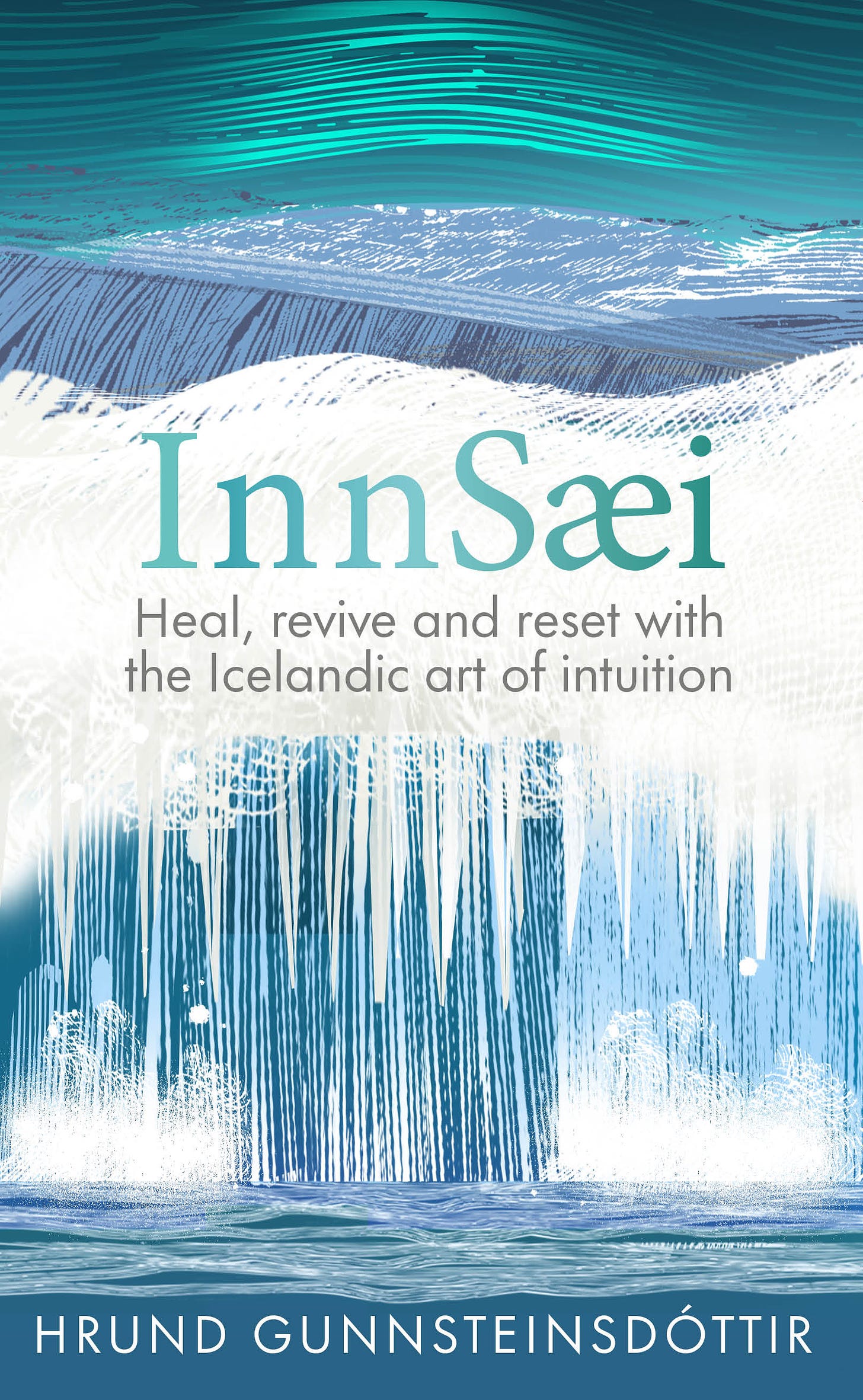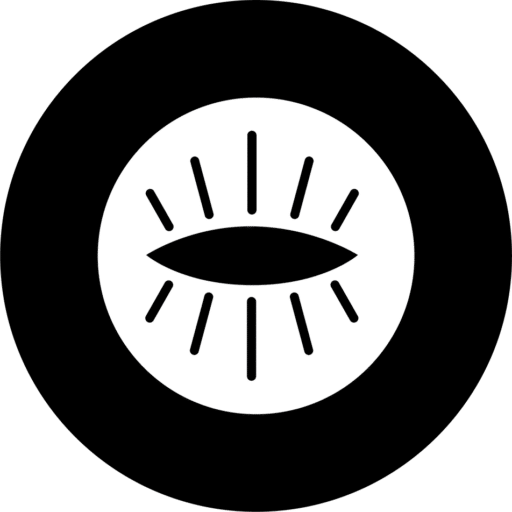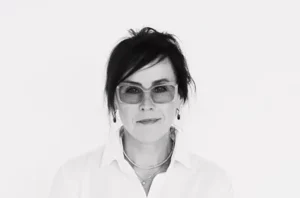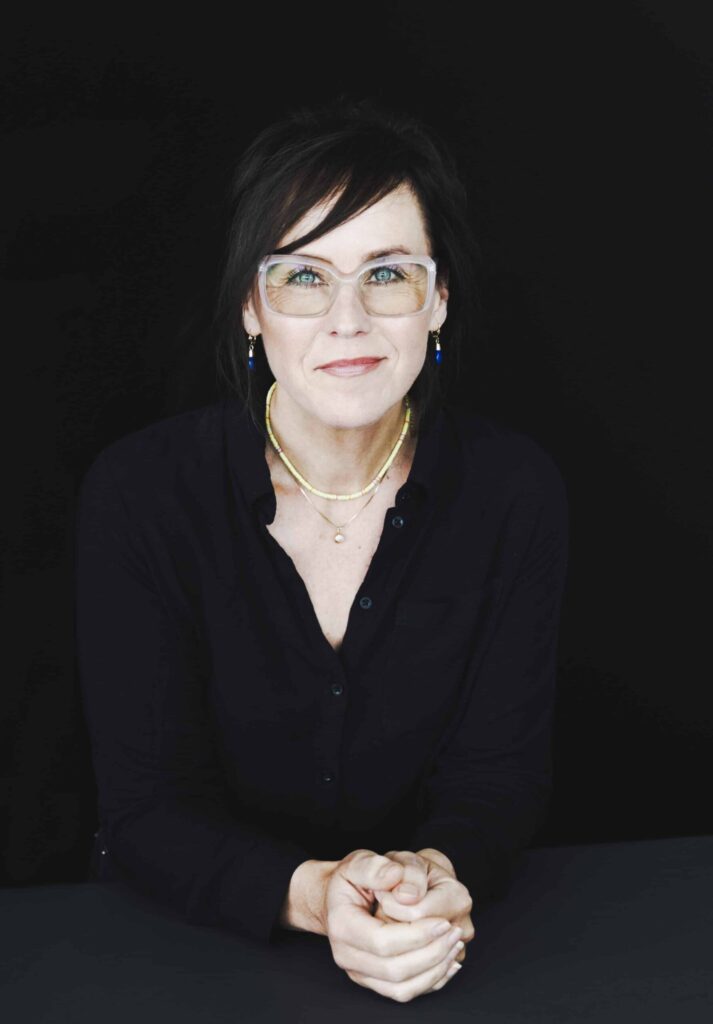Embrace and harness the wisdom embedded in you
Hi there,
I was recently asked if I am not worried about encouraging people to follow their InnSæi, Icelandic for intuition, since “intuition often drives bad decisions and unfounded judgements”. The person took example of leaders who do that and mentioned Donald Trump and Jair Bolsonaro, the former presidents of the United States and Brazil, who take to each other and are both notorious for their impulsive, undemocratic, irrational, sexist, racial and aggressive remarks.
The question threw me off a bit, but it doesn’t come from nowhere. After all, Donald Trump was the president who said: “I have a gut, and my gut tells me more sometimes than anybody else’s brain can ever tell me.”
When people’s hunch is to associate intuition and InnSæi with someone who is considered to have the power to worsen life on Earth, as portrayed in this Guardian article titled How bad can the climate crisis get if Trump wins again?, its time to stop and think again.
The world within us
The reason why I do what I do is because I worry that we’ve become so disconnected from our inner world, that we no longer value what being human is. Sometimes it is as if we have forgotten the fundamental role that the world within us plays when it comes to ethics, morals, sense of belonging, intimacy, intelligence, and ability to co-create. There’s a persistent perception that we should avoid listening to our intuition and that the human mind or spirit cannot be trusted.
I think it’s time to heal our relationship to ourselves so that we can see each other and the world we live in with fresh eyes and in vivid colours.
“The war on intuition”
In The Intelligence of Intuition (2023), Gerd Gigerenzer, the director of the Harding Center for Risk Literacy at the University of Potsdam, addresses intuition’s bad reputation and goes as far as to call this “the war on intuition”. He writes:
“Beginning in the 1970s, a group of psychologists and behavioural economists began a new war on intuition, pitting it once again against rationality. This time, the target of attack extended beyond female intuition to include everyone’s intuition. The key message, spread by bestselling books such as Ariely’s Preditably Irrational (2008), Kahneman’s Thinking Fast and Slow (2011) or Thaler and Sunstein’s Nudge (2008), is that only the abstract logic of rational choice theory is worthy of trust.”
Intuition and reason go together
Intuition has “a rep to protect”, to borrow the words of John Travolta as Danny in the classic Grease.
And this is deep, because it seems like we’ve become seriously biased against our own intelligence, cognitive agility, wisdom and ability to intuit, imagine, innovate, create, have compassion for others, experience a sense of awe and to reason well. Yeah, that’s right: To reason well.
Because intuition is not divorced from rationality. The better your intuition, the better you are at reasoning. Intuition and InnSæi help us understand in our bones that everything is interconnected. It enables us to process million of data points our conscious mind can not. It knows how to navigate complexity and gets ecosystem-thinking.
Take a moment to listen to Dr Iain McGilchrist talk about intuition’s bad reputation.
Fortunately, interest in intuition’s has been growing in recent years, and with it research and awareness. People who would ten or fifteen years ago have dismissed intuition as a new age woo-woo or a serious cognitive bias are now seeking ways to understand how it can help them navigate risk, improve their decision making and live more fulfilling lives. Perhaps the recession in the first decade of this century, more online-distraction and noise, worsening mental health, and the covid pandemic played a role in re-directing our attention inwards?
Why InnSæi?
In 2010, around the time Kristin Olafsdottir and I started developing the approach for our documentary film InnSæi – the Sea Within (subtitle: The Power of Intuition, in North America), which has been shown worldwide on Netflix and other streaming services, I had just finished an education program in Iceland based on harnessing the students’ InnSæi to enhance creative and critical thinking and started having more conversations about intuition in English with people from around the world. I would ask them to talk to me about intuition. If they thought we are connected or disconnected from it in the modern world? If disconnected, did it matter? If so, why?
It became clearer to me than it had before, that depending on the people I conversed with, – from shamans to Harvard professors to artists, leading scientists and everything in between, there are different ways we define intuition: some define it as an ‘irrational impulse’ that we should never rely on. Some consider it as ‘a women’s thing’ and other tie it to ancestral or spiritual guidance. Some explained that a well harnessed intuition is key to human’s highest possible intelligence and the most incredible artwork in the world. This diversity in perspectives continues to intrigue me, and in a way, ‘I’ve travelled the world’ to collect answers and come back home to my local, Icelandic soil and realised that the Icelandic word InnSæi helps reframe our understanding of intuition. The reason is because InnSæi, the word itself, holds space for the varied and complex inner workings of intuition. In that sense, it is a ‘word bundle’, – a concept I first heard about (and love!) in an interview with Melanie Goodchild in the podcast Leading from Being.
The power of a word
The power of the word InnSæi lies in its ability to hold the space for both poetry and literal meaning. When we dive into its two parts, inn and sæi, InnSæi means
the sea within (the flow of our unconscious mind),
to see within (how we introspect) and
to see from the inside out (how we navigate the world and our lives).
In other words, it bundles up much of the complex workings of intuition and helps us grasp this precious wisdom-portal, instead of reducing it to an irrational impulse or simply a bias.
InnSæi is a muscle we need to practice: When we don’t practice it, we simply exist. When we do, we can become fully alive.
Two rhythms to harness InnSæi
InnSæi helps us make choices, innovate, navigate and create, communicate with other people, sense our environment and fall in love. When we are aligned within, we feel more secure and courageous. We take a risk when we decide to trust someone. InnSæi helps us take a leap of faith which can turn the tide in our lives, or at the least, help us grow as individuals.
When we excel in a particular domain, we have synchronised InnSæi with reason and analysis. We’ve begun to understand when to let things sink in and brew and when to be deliberate and execute. I share ways to harness InnSæi and these two rhythms in my book InnSæi: heal, revive and reset with the Icelandic art of intuition (Lagom, Bonnier books UK, 2024)

Here’s food for thought
* Very little of our mental processes are conscious. According to Dr Iain McGilchrist, around 99 percent of them are not conscious at all. InnSæi and intuition alerts us to things that our very slow conscious minds may not be aware of.
* Intuition and InnSæi is fundamental to our intelligence and it is an embodied knowledge; it does not exist in isolation from other cognitive faculties and it is informed by our whole body and being as well as our environment (natural and man-made).
* Intuition and reason are not two boxes isolated from each other. Without intuition we don’t reason well. We would not send a man to the moon based on our intuition alone, neither could we innovate based on reason alone. “Without reason, there would be no mathematics. Without intuition, there would be little innovation”, writes Gerd Gigerenzer (2023).
* We harness our highest intelligence when we combine analysis with intuition. Research on intuition based on the work of 19 contemporary ‘geniuses’, including 17 Nobel Laureates shows that their “big leap” occurred when they switched back and forth between intuition and analysis. I also recommend Wilma Koutstaal’s book The Agile Mind, which explores how we can realise our fullest capacities for insightful innovation, fluent improvisation, and flexible thinking.
* A good hunch, a gut feeling or intuition on a certain topic, whether in science, military strategy, business or the arts, is based on presence, experience, knowledge and expertise. It’s not enough to just think you are right. Jonathan Haidt’s book The Righteous Mind is a healthy read.
* Intuition and InnSæi takes a long time to brew in our unconsciousness, the sea within, before it may rise to the surface of our conscious mind in the form of insights, ideas or hunches. Harnessing good intuitions and InnSæi is about aligning with this process.
* In times of uncertainty, a well harnessed intuition works best. When there are known knowns, statistics and analysis work well. (Forbes)
* Stress, biases, fear, over-thinking, over-analysing and anxiety are an example of things that can block or skew our intuition, InnSæi and flow; the ultimate state of mind.
If you were to do one thing today to connect with the sea within you and be fully present in your body, what would it be? Please share in comments or send me a line. I’d love to hear your thoughts!
With love,
Hrund
Send me in a line or a question you think I should answer here, on hrund.gunnsteinsdottir@gmail.com.
I look forward to hearing from you.


